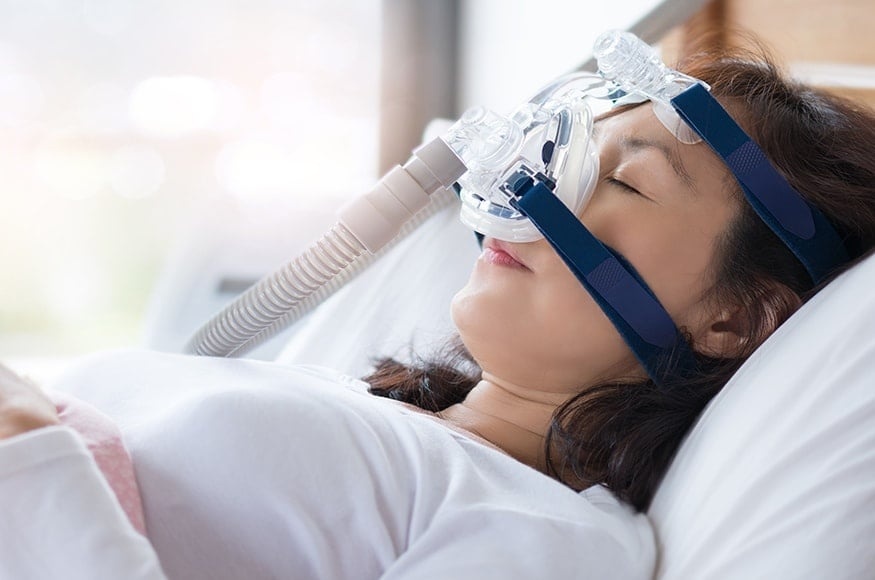What is Sleep Apnea? Treatments and Consequences
Sleep apnea is a condition in which your breathing stops and starts again repeatedly during sleep. These pauses in breathing can last from a few seconds to minutes and can repeat several times an hour, disrupting your sleep. Here are the treatments and consequences of sleep apnea:
What is sleep apnea?
If you have sleep apnea, your breath stops for at least ten seconds during sleep. If such a cessation of breathing occurs 10 to 15 times per hour, we even speak of sleep apnea syndrome. During a sleep apnea, you stop getting air, causing an oxygen deficiency and raising the CO2 level in your blood. Your brain signals your body to wake up. You then usually do so unconsciously with a jolt. Breathing recovers and you go back to sleep. At night you may not notice it much, but during the day you suffer from fatigue.
Apneu-Hypopneu Index (AHI)
Everyone experiences apnea in their sleep from time to time, but that doesn't immediately mean your health is at risk. If the number of apneas per hour (The Apnea-Hypopnea Index or AHI) is between 5 and 15, it is considered a mild form of sleep apnea. An AHI of 15-30 is average sleep apnea. With an AHI of more than 30, you have severe apnea.
Causes of sleep apnea
Sleep apnea syndrome can have several causes. Each cause leads to a different form of apnea. We distinguish three types of sleep apnea:
- Obstructive Sleep Apnea Syndrome (OSAS): The most common form, especially in middle-aged men struggling with obesity. During sleep, the tongue and/or soft tissue of the wall in the pharynx may sag backward, partially occluding the pharynx.
- Central Sleep Apnea Syndrome (CSAS): In this, the respiratory muscles do not receive a signal from the brain to breathe. This form of apnea is most common in young children or adults with cardiovascular disease.
- Mixed form of OSAS and CSAS: A combination in which there is oxygen deprivation due to airway closure and no respiratory movements at the same time.
Consequences of sleep apnea
- Sleepiness: Disturbed sleep causes you to be constantly tired and irritable during the day.
- Cardiovascular disease: The lack of oxygen can lead to cardiac arrhythmias, high blood pressure, heart attack or stroke.
Recognition of sleep apnea
Symptoms include fatigue when getting up, daytime sleepiness, palpitations, snoring, concentration and memory problems, and more.
Treatments for sleep apnea
- Nasal mask (CPAP): A mask that continuously blows air into the nose and throat during sleep to prevent throat collapse.
- Oral appliance (MRA): A mouth brace that holds the lower jaw and tongue more securely in place.
- Surgery: Surgical procedures to remove the uvula, tonsils and part of the pharyngeal mucosa, or to move the upper and lower jaws forward.
Importance of a good sleep system
In addition to medical treatments, proper support while sleeping is essential. A mattress that is too hard can cause snoring and sleep apnea through discomfort and improper sleeping positions.
Sleep apnea can be a serious condition that can affect both your sleep and your daytime health. If you experience symptoms of sleep apnea, it is wise to consult a doctor for proper diagnosis and treatment.



























0 Comments
There are no comments yet, be the first one to comment....